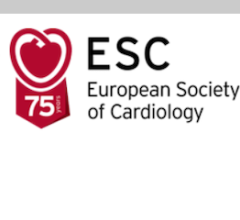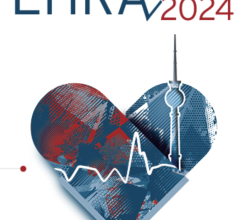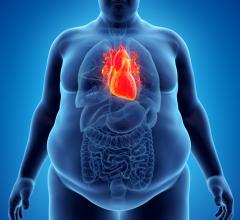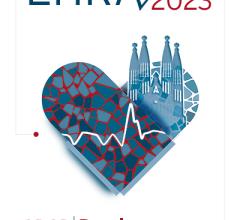
May 11, 2023 — Adults in their 20s and 30s with mental disorders have an up to three-fold elevated likelihood of a heart attack or stroke, according to a study in more than 6.5 million individuals published in the European Journal of Preventive Cardiology, a journal of the European Society of Cardiology (ESC).1 Lifestyle behaviors did not explain the excess risk. One in every eight of the 20 to 39 year-old participants had some kind of mental illness including depression, anxiety and insomnia.
“Psychological problems were common in young adults and had strong links with cardiovascular health,” said study author Professor Eue-Keun Choi of Seoul National University College of Medicine, Republic of Korea. “The findings indicate that these individuals should receive regular health check-ups and medication if appropriate to prevent myocardial infarction and stroke. While lifestyle behaviours did not explain the excess cardiovascular risk, this does not mean that healthier habits would not improve prognosis. Lifestyle modification should therefore be recommended to young adults with mental disorders to boost heart health.”
This study investigated the association between mental disorders in adults aged 20–39 years and the risks of developing myocardial infarction and ischaemic stroke. The study used the Korean National Health Insurance Service (NHIS) database which covers the country’s entire population. A total of 6,557,727 individuals aged 20 to 39 years who underwent health examinations between 2009 and 2012 and had no history of myocardial infarction or stroke were included in the study. The average age was 31 years, and more than half (58%) of participants were 30 years or older.
Some 856,927 (13.1%) participants had at least one mental disorder. Among those with mental disorders, nearly half (47.9%) had anxiety, more than one in five (21.2%) had depression and one in five (20.0%) had insomnia. More than one-quarter (27.9%) of participants with mental health problems had somatoform disorder, while 2.7% had substance use disorder, 1.3% had bipolar disorder, 0.9% had schizophrenia, 0.9% had an eating disorder, 0.7% had personality disorder and 0.4% had post-traumatic stress disorder (PTSD).
Participants were followed until December 2018 for new-onset myocardial infarction and stroke. During a median follow-up of 7.6 years, there were 16,133 myocardial infarctions and 10,509 strokes.2 The authors analyzed the association between mental disorders and cardiovascular outcomes after adjusting for factors that could influence the relationships including age, sex, high blood pressure, diabetes, high cholesterol, metabolic syndrome, chronic kidney disease, smoking, alcohol, physical activity and income.
Participants with any mental disorder had a 58% higher likelihood of myocardial infarction and 42% greater risk of stroke compared to those with no mental disorder. The risk of myocardial infarction was elevated for all mental disorders studied, with the magnitude ranging from 1.49- to 3.13-fold. Looking at each condition separately, compared to participants with no mental disorder, the risk of myocardial infarction was 3.13 times higher in those with PTSD, 2.61 times higher for schizophrenia, 2.47 times higher for substance use disorder, 2.40 times higher for bipolar disorder, 2.29 times higher for personality disorder, 1.97 times higher for eating disorders, 1.73 times higher for insomnia, 1.72 times higher for depression, 1.53 times higher for anxiety and 1.49 times higher for somatoform disorder.
The risk of stroke was elevated for all mental health issues except PTSD and eating disorders, with hazard ratios ranging from 1.25 to 3.06. The hazard ratios for each condition were 3.06 for personality disorder, 2.95 for schizophrenia, 2.64 for bipolar disorder, 2.44 for substance use disorder, 1.60 for depression, 1.45 for insomnia, 1.38 for anxiety and 1.25 for somatoform disorder.
The authors also analyzed the associations according to age and sex. Depression, anxiety, schizophrenia and personality disorder were associated with higher risks of myocardial infarction for participants in their 20s compared with those in their 30s. In addition, depression and insomnia were linked with greater risks of heart attack and stroke in women than men.
Study author Dr. Chan Soon Park of Seoul National University Hospital, Republic of Korea, said: “Patients with mental health problems are known to have a shorter life expectancy than the general population, with the majority of deaths due to physical illnesses. Our study shows that substantial numbers of young adults have at least one mental health problem, which may predispose them to heart attack and stroke. Future research should examine the cardiovascular benefits of managing psychological problems and monitoring heart health in this vulnerable group.”
For more information: www.escardio.org
References
1Park CS, Choi EK, Han KD, et al. Increased cardiovascular events in young patients with mental disorders: a nationwide cohort study. Eur J Prev Cardiol. 2023. doi:10.1093/eurjpc/zwad102.
Link will go live on publication:
https://academic.oup.com/eurjpc/article-lookup/doi/10.1093/eurjpc/zwad102
2Myocardial infarctions and strokes during the first year after the health examination were excluded due to the possibility that asymptomatic cardiovascular disease was present prior to enrolment into the study but diagnosed afterwards.


 August 29, 2025
August 29, 2025 









